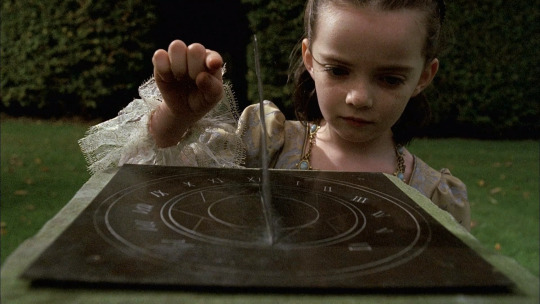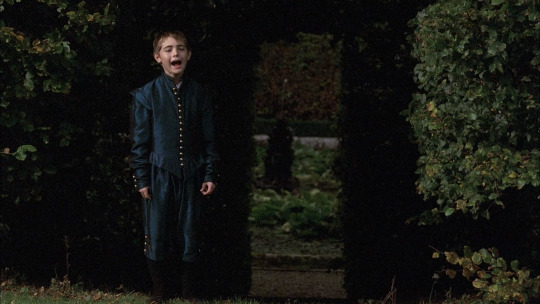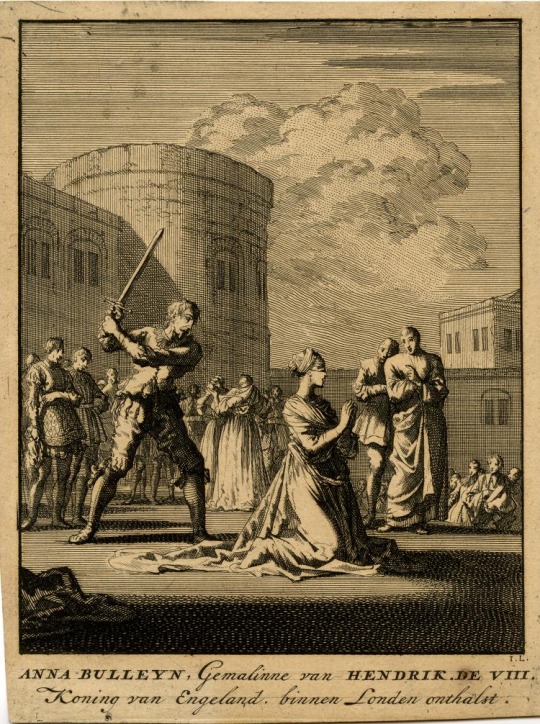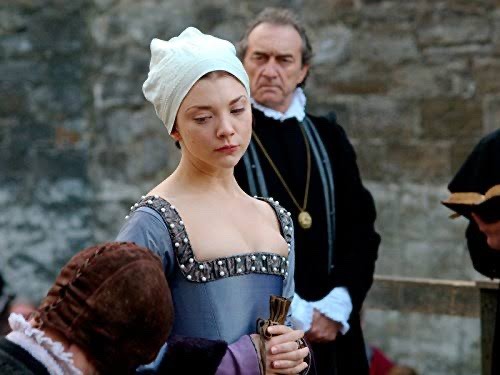#Anne Boleyn Fiction
Explore tagged Tumblr posts
Text

Illustration of Jane Seymour. Bring Up The Bodies published by The Folio Society 2023.
#thomas cromwell#historical fiction#jane seymour#anne boleyn#henry viii#henry viii of england#hilary mantel#16th century#1500s#illustration
35 notes
·
View notes
Text
Anne Boleyn: *does a good deed*
Hilary Mantel's reaction
#wolf hall#wolf hall memes#hilary mantel#anne boleyn#period drama#historical fiction#george boleyn#thomas cranmer
47 notes
·
View notes
Text



The Tudors (2007) / Queenbreaker (2016), by Catherine McCarran
#anne boleyn#george boleyn#the tudors#web weaving#the idea of them being twins has been coming up a lot more frequently in tudor fiction recently; i've noticed...
27 notes
·
View notes
Note
Alicent would HATE Anne Boleyn, a reformist who helped instigate the break from Rome and the Catholic church, and would call her the “concubine”, “whore”, she-devil”, “Jezebel”. Alicent would call Elizabeth a “bastard” and would support Katherine of Aragon, the pious, loyal and dutiful wife, a daughter of Isabella the Catholic.
Anne was everything that the ideal woman at that time wasn’t meant to be. She wasn’t submissive, she wasn’t meek, she wasn’t somebody who withheld her emotions, she was bold, she was very outspoken, she was emotionally demonstrative, probably emotionally sort of rather immoderate and rather extreme and not at all retiring, very assertive. And I think ultimately somebody who wanted to be in control of her own destiny; in that way makes her quite modern. I love her speech at her trial, in which she describes her one “crime” as not having shown Henry enough “humility”. I think that’s an extraordinary, “feminist” insight for a woman of her time. “I confess I have had jealous fancies and suspicions of him, which I had not discretion enough, and wisdom, to conceal at all times”, she recognized that she had transgressed against the norms of wifely behavior, that she didn’t remained in her proper place. To describe her as a feminist would be an anachronism, but she did step over the ever-moving line that marked the boundary of the comfort zone for men of her era, stepping right into the epicenter of politics during a volatile, dangerous time.
What’s up with Alicent’s stans trying to force nonsensical parallels between her and controversial & challenging women (Anne Boleyn, Medea, Clytemnestra, etc) ? Who’s next, Scarlett O’Hara, Anna Karenina, Hester Prynne ? I thought Alicent was the Virgin Mary who never did anything wrong and whose only character trait is suffering.
Answer to this post?
Again, haven't gone into any real depth with Anne Boleyn, but these sound convincing from what I do know of her. You really got me with the supporting Catherine of Aragon bit, because...whoo, Alicent would.
#asoiaf asks to me#anne boleyn#alicent hightower#fiction vs reality#english history#medieval history#european queens
29 notes
·
View notes
Text
I used to believe Mary Boleyn and Thomas from Wolf Hall had the potential to be a wholesome thing, but after realizing that she had intended to baby trap him with someone else's child, i cannot look at it the same way.
And it really got me thinking about Mary Boleyn as a character who just happens to use Thomas the same way others do. And that perhaps she's no different than her sister when it comes to Thomas.
Mary is usually categorized as the 'kinder' Boleyn, which makes sense given how she's written. But then there's that line about the Boleyn's using everyone. And that applies to Mary Boleyn too.
I don't believe she loved Thomas. She was interested in him the same way a cat was interested in a mouse, and I think what made it worse is that he couldn't see through it, and she was great at it.
She wanted to marry him knowing he'd face the wrath of her family, knowing she was already pregnant with someone else's child that was not Thomas's, and knowing it could end him.
She was open with her affections towards him, where people could see. Where he could be compromised because he is is of low birth.
Where he could have almost killed man, and Mary shows absolutely no remorse for any of this.
Mary was looking out solely for herself and her children, never Thomas. And while that's not a bad thing, or not unexpected, it just not talked about. And it doesn't mean she gave af about him.
I think the narrative tends to project that manipulative and "evil" stereotype on Anne Boleyn, but at least she's open with her intentions when it comes to Thomas. She has never been dishonest with him in what she wants, and her rise to power assured his as well.
That's not the same with Mary and Thomas. Anne, at the beginning at least, thought of Thomas's wellbeing. Mary never did.
I could argue that Mary treats him almost worse than Anne does.
14 notes
·
View notes
Text
Been reading a lot of those SIX reunites with their kids fics and hinestly I just can’t see Anne suddenly being a mother for Elizabeth. We have to remember that this is Musical!Anne, she doesn’t act very mature (wether you consider that to be an act or not is on you) and doesn’t seem to mind her daughter a lot. Lina talks about Mary and how she was one of the most important people in her life (so much so she treats not seeing her as one of the lowest points of her life [even if a bit comedically]) and half of Jane’s song is just talking about Edward, but Anne mentions Elizabeth once and just doesn’t convey much emotion except for “yeah, I kind of just died because she was girl [insert beheaded joke]”, and while, yes, Anne did choose to die so Elizabeth could rule one day I think Musical!Anne would maybe be kind if bitter about that? The amount of times she mentions dying cannot be healthy, she’s certainly not dealing well with it and she only did it for her daughter who, in this version, she doesn’t seem to really think much of.
I’d personally write a Anne-Elizabeth relationship as really strained. Eliza grew up with this idea of her mother from very biased sources, but from things like the letter, necklaces and the ring we can assume that she never listened to those people and was somewhat fond of this woman she barely remembered, but the thing with being fond of people you don’t know is that you usually end up idolizing them, and Anne, she died for her daughter’s right to the throne and absolutely regretted it. She was still moved around from the line of succession multiple times and was granted this right because of Catherine Parr and Henry, her efforts meant nothing, and now she’s meeting this kid who has incredibly high standards of who she’s suppsoed to be and she just doesn’t want to live up to them. Anne doesn’t want to be an amazing, kind, smart and perfect woman, she wants to be normal and not be reminded of Henry every second of her life because of a kid. She doesn’t need or want that responsibility because she knows that she’ll fuck it up.
At the end of the day literally all of the next wives also raised Eliza to some level. Jane when Anne had just died, Anna ended up becoming an important role model for her and Edward, Kathryn and her seemed to get along mildly well and Catherine Parr literally took her in (despite having a gross husband), so even with a rocky relationship with Anne Elizabeth would still have meaningful mother figures to take care of her in those AUs.
#anne boleyn#elizabeth i#this is musical only#i cant stress this enough#six the musical#its fiction mixed w reality dont use it as proof#for any real life relationships or events#its a personal expansion of the six verse based off on real events#but still mostly fiction#anyway#six#six broadway#txt post#six the kids#elizabeth tudor#queen anne boleyn#my six posts
26 notes
·
View notes
Text
Do I want Anne Boleyn to come down from heaven to Haunt The Shit Out Of Thomas Cromwell in any Tudor Period Drama? Yes.
#something something also two people in love with the same man/true love of the same man#(absolutely in The Tudors they had Chemistry etc)#i am a tom cromwell enjoyer and blorbo woobying (fictional version)#but also I am above all an Anne Boleyn girlie and a ‘yeah he did all that shit’ person#(i just think Anne should be able to haunt him Once like)#lil and her anne boleyn feelings
12 notes
·
View notes
Text
“O death, rock me asleep,
Bring me to quiet rest,
Let pass my weary guiltless ghost
Out of my careful breast.
Toll on, thou passing bell;
Ring out my doleful knell;
Let thy sound my death tell.
Death doth draw nigh;
There is no remedy.
My pains who can express?
Alas, they are so strong;
My dolour will not suffer strength
My life for to prolong.
Toll on, thou passing bell;
Ring out my doleful knell;
Let thy sound my death tell.
Death doth draw nigh;
There is no remedy.
Alone in prison strong
I wait my destiny.
Woe worth this cruel hap that I
Should taste this misery!
Toll on, thou passing bell;
Ring out my doleful knell;
Let thy sound my death tell.
Death doth draw nigh;
There is no remedy.
Farewell, my pleasures past,
Welcome, my present pain!
I feel my torments so increase
That life cannot remain.
Cease now, thou passing bell;
Rung is my doleful knell;
For the sound my death doth tell
Death doth draw nigh;
There is no remedy.”
— Anne Boleyn, 488 years ago.


On this day, May Nineteenth, four hundred and eighty-eight years ago, Anne Boleyn was executed in scaffold in the Tower of London.
Painting: Anne Boleyn's Execution by Jan Luyken
#anne boleyn#queen anne boleyn#era Tudor#the tudors’ lacked Anne’s blindfold but dormer’s still my fav fictional portrayal of Anne#rip Anne Boleyn
9 notes
·
View notes
Text
the marvel how-can-i-shoehorn-more-stuff-about-medieval-queens-into-this-fanfiction universe
#'medieval' here used as a shorthand for a period that also covers early modern#that untitled sifki sequel may or may not have another 'btw her maids totally know her menstrual cycle' moment in it#i know the readers LOVE those#(they don't. i assume?)#and the frostmaster 'anne boleyn' thing is gonna open with a Very Tasteful bit of neck-admiring#i've actually been branching out a bit in my readings though. i even read one about a KING recently. one written by A MAN even :O#tho i still favour my kindle categories of 'dead queens (uk)' 'dead queens (not uk)' and 'historical women (not queens tho)'#see? i read upon diverse historical topics. (or 'divers' as the primary sources would have it.)#btw if anyone can rec a non-fiction book in english about wu zetian i'd be forever grateful thanks in advance
7 notes
·
View notes
Text

Thomas Cromwell and others taking Anne Boleyn to the Tower of London to await her trail and eventual tragic outcome. May 1536.
#hilary mantel#thomas cromwell#bring up the bodies#anne boleyn#1500s#16th century#henry viii#illustration#folio society#historical fiction#english history
16 notes
·
View notes
Text
The trouble with histfic is even when it's good you'll be vibing and then come across a stupid stupid mistake that makes you want to tear your hair out.
17 notes
·
View notes
Text
"Anne Boleyn is an apt choice for the heroine of a YA historical fiction because her story has an obvious gendered dimension: she is a woman who must grapple with negotiating her way through the patriarchal world of the Henrician court in which her worth is consistntly tied to her sexuality. As Karen Lindsey (1995) has argued persuasively, a feminist reconsideration of her narrative suggests that she should be understood as a victim of sexual harassment by Henry."
stephanie russo, "contemporary girlhood and anne boleyn in young adult fiction."
#anne boleyn#stephanie russo#girlhood#henry viii#history#historical fiction#house of tudor#tudor dynasty#tudor era#tudor period#women's literature#women's history#royal history#english history#early modern history#*quotes
4 notes
·
View notes
Text
I had just finished reading Brandy/Emily Purdy's book The Boleyn Bride, a book about Elizabeth Boleyn, Anne's mother and her rendition of Anne Boleyn has got to be one of the most unsympathetic Anne's I had ever read and that includes Philippa Gregory's The Other Boleyn Girl . I don't also like the way George is portrayed in that book. He is more like Anne Boleyn's personal teddy instead of a character in his own right.
4 notes
·
View notes
Text
Gregory is also influenced by Warnicke's description of Anne as motivated by a typical ambition to 'marry well'; and yet, much more so than Warnicke, Gregory portrays Anne's ambition as particularly mercenary rather than typical of class and context. Additionally, in a dramatic departure from Warnicke, Gregory promotes the idea that Anne was guilty of the worst crimes alleged against her [...] To the end of writing Anne as villainess, Gregory also eliminates elements of Warnicke's analysis favourable to Anne: notably, any sign of Anne's personal modesty, piety, or devotion to religious reform are elided in Gregory's novel in favour of a view of her as licentious in her nature, prone to superficiality, and entirely amoral.
'Anne taught him how to be cruel': Henry VIII in Modern Historical Fiction, by Megan Hickerson, Chapter 12 of Henry VIII and History, ed. by Thomas S. Freeman & Thomas Betteridge
5 notes
·
View notes
Note
Anne Boleyn and Alicent (either in F&B or HOTD) are NOTHING alike. Anne disrupted social order. Alicent represents the status quo. Anne is an “heretic” and a “whore”, Alicent represents order, tradition, conservatism. Anne is the most influential and important queen consort England has ever had and changed the country forever. No one mentions Alicent when they talk about the Dance of the Dragons.
“Anne Boleyn is one of the most controversial women in English history; we argue over her, we pity and admire and revile her, we reinvent her in every generation. She takes on the colour of our fantasies and is shaped by our preoccupations: witch, bitch, feminist, sexual temptress, cold opportunist. She is a real woman who has acquired an archetypal status and force, and one who patrols the nightmares of good wives; she is the guilt-free predator, the man-stealer, the woman who sets out her sexual wares and extorts a fantastic price. She is also the mistress who, by marrying her lover, creates a job vacancy. Her rise is glittering, her fall sordid. God pays her out. The dead take revenge on the living. The moral order is reasserted.”
https://href.li/?https://www.theguardian.com/books/2012/may/11/hilary-mantel-on-anne-boleyn
Anon's talking about this post.
This is an interesting way to talk about it. Thanks, anon.
#asoiaf asks to me#anne boleyn#european history#european queens#fiction vs reality#fire and blood#alicent hightower#alicent's characterization#fire and blood characters
9 notes
·
View notes
Text
Title: The Specters (original ao3 link) Summary:
He remembers her saying—was it in this very room?—‘Be good to me.’ He thinks, if I see her again, perhaps this time I will. In an alternate universe where Anne Boleyn never loses her head, she and Thomas Cromwell rework their relationship. (A series of mostly unrelated shorts in which they learn to survive together. Sometimes he saves her, sometimes, she saves him. Other times, they save themselves.)
She is pacing across the room as if the fire is already beneath her feet. She wrings her hands together, throws them in front of her and pulls on the ornate fabric of her sleeves. Her eyes have already misted with tears, and her expression is one of pure dread.
He has told her that the king means to kill her and would expect nothing less from her. Her house of cards has finally fallen. Her hard work ending with her kneeling on the block, or tied to a pyre.
Though he finds solace in the fact that she is comfortable enough to fall apart in front of him.
It has not been so for some time. He supposes he has offered the first olive branch in their strained relationship, and Anne has latched onto it like a famished soldier on the cusps of desertion. They have kept secrets from the other for so long, working in the shadows against the other. Racing to knock the other off of the pedestal the king had raised them to
He stands in silence, allowing her to absorb the information he’s provided her. Already, it’s too much. The king wants her downfall to be swift, and by his admission of what the Henry has told him, Anne will either fight or flee. She will not survive if she chooses the former.
“If you decide to fight, you cannot win. He will have me put false charges on you and you will be executed.” He cautions the Queen as the air of ambition rises about her. He does not mean to smother the fight she has left, though he thinks she may take it that way, “I have already gathered evidence against you.”
“I imagine you had your fun with that,” she snorts, pausing her pacing just to scowl at him. She resumes, her new dog running beneath her skirts.
“If I had my fun with it, I would not be standing here warning you of your impending downfall. I do so at the risk of my own life,” His retort lacks the harshness that her accusations did, though he is callous and to the point. Should this go more sideways than it already has, he will be killed alongside Anne. For that reason he has not told anyone what he had planned to do. Not even Rafe, who will have most certainly let him know how foolish he was being.
The decision had been made on a whim. And seldom did he make such rash decisions without properly weighing the consequences. He recalls arriving in his study early that morning. Pouring over the written statements provided to him regarding the Queen’s infidelity. The act of holding a life in his hand should have been more monumentous than it was. But today it was tedious. Henry had made it so. And how else could he live with himself for what he prepared to do to an innocent woman if the act was anything more than tedious?
It was not five minutes after he settled that he’d heard it.
Two voices, muffled as if they were speaking just outside of his door. The voices near identical to he and the Queen. “Be good to me–” he managed to make out. The woman–the Queen–was pleading. Had he seen her, she would have been crying.
“If I see you again, perhaps this time I will.” He was at his feet at the sound of his own voice, throwing the door open immediately. What he would see, he was unsure of. But it certainly was not an empty hallway. There was a chill in the air, the subtle scene of perfume as if a woman had been lingering outside.
But he was alone, with only his reflection on the mirror down the hall.
Presently he remembers the occurrence. He does not give much credit to tales of ghosts and faeries. But he believes in God, and believes there is no need for a priest to officiate His messages.
Anne has taken the seat. He takes the one opposite of her. Tentatively, he reaches over the table. He holds his breath as she locks eyes with him, and releases it as she extends her hands to his.
“What will I do, Thomas?” Her tears spill over now.
“I have contacts in Germany. People who you can trust. They will care for you,” he assures her, squeezing her hands, “we can have you out of the country within the next month. I will arrange it all.”
“My family?” Her eyes sparkle, her voice hitches, “Elizabeth?” The consequences of his impromptu decision stack on him one after the other. He has no particular love for the other Boleyns. Especially the men. “You are her mother, should you wish for her to go with you, I will orchestrate it. But as for your family, they will need to denounce you.” He thinks of the accusers who will no longer be vindicated now that he has thrown their bargaining tool away. But he hasn’t, not really. He will save Anne and keep the charges on the others. He will save Anne, but the Boleyns are still his enemies.
Be good to me, it is below a whisper, but loud enough for him to hear.
“You do not need to decide now, but I will need an answer soon. I will delay the king for as long as I can.” Thomas stands. Anne reaches for his hand as he pulls it away. He hesitates, and lets her savor his touch. He savors hers as well. At a point they were friends. This phantom distance between them did not exist.
He would like it to be so again.
He bows to her, deciding what steps to take next. He will not involve his children. He will send Rafe on some fool's errand. Richard will be easy enough to lead on. And Gregory is…well Gregory.
He thinks back to the phantom argument outside of his door. He hopes he has satisfied the specters.
6 notes
·
View notes